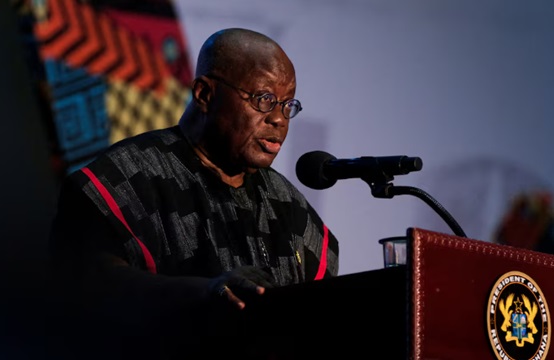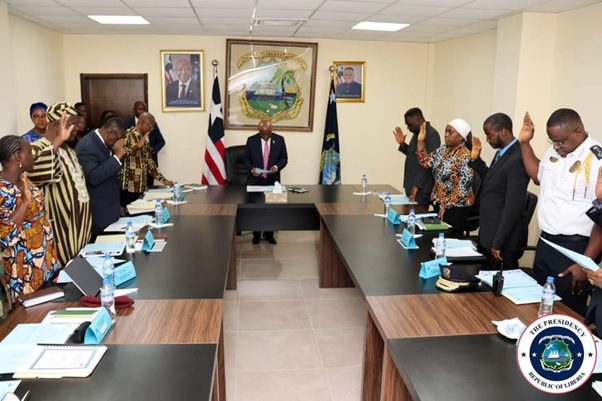MOGADISHU, (REUTERS) – As a speed boat carrying more than a dozen Somali pirates bore down on their position in the western Indian Ocean, the crew of a Bangladeshi-owned bulk carrier sent out a distress signal and called an emergency hotline.
No one reached them in time. The pirates clambered aboard the Abdullah, firing warning shots and taking the captain and second officer hostage, Chief Officer Atiq Ullah Khan said in an audio message to the ship’s owners.
“By the grace of Allah no one has been harmed so far,” Khan said in the message, recorded before the pirates took the crew’s phones. The company shared the recording with Reuters.
A week later, the Abdullah is anchored off the coast of Somalia, the latest victim of a resurgence of piracy that international navies thought they had brought under control.
The raids are piling risks and costs onto shipping companies also contending with repeated drone and missile strikes by Yemen’s Houthi militia in the Red Sea and other nearby waters.
More than 20 attempted hijackings since November have driven up prices for armed security guards and insurance coverage and raised the spectre of possible ransom payments, according to five industry representatives.
Two Somali gang members told Reuters they were taking advantage of the distraction provided by Houthi strikes several hundred nautical miles to the north to get back into piracy after lying dormant for nearly a decade.
“They took this chance because the international naval forces that operate off the coast of Somalia reduced their operations,” said a pirate financier who goes by the alias Ismail Isse and said he helped fund the hijacking of another bulk carrier in December.
He spoke to Reuters by phone from Hul Anod, a coastal area in Somalia’s semi-autonomous northeastern region of Puntland where the ship, the Ruen, was held for weeks.
While the threat is not as serious as it was in 2008-2014, regional officials and industry sources are concerned the problem could escalate.
“If we do not stop it while it’s still in its infancy, it can become the same as it was,” Somali President Hassan Sheikh Mohamud told Reuters last month at his highly-fortified art deco palace, Villa Somalia.
Over the weekend, the Indian Navy intercepted and freed the Ruen, which was sailing under Malta’s flag, after it ventured back out to sea. The European Union’s anti-piracy mission, EUNAVFOR Atalanta, said the pirates may have used the ship as a launchpad to attack the Abdullah.
The Indian Navy said all 35 pirates aboard surrendered, and the 17 hostages were rescued without injuries.
Cyrus Mody, deputy director of the International Chamber of Commerce’s anti-crime arm, said the intervention of the Indian Navy, which has deployed at least a dozen warships east of the Red Sea, could have an important deterrent effect.
“This intervention does show that the risk/reward is very much against the pirates, and hopefully that will make them think a few times over,” he said.
A Bangladeshi foreign ministry official, however, told Reuters the government was “not in favour of any kind of military action” to free the Abdullah. The official, who asked not to be named to discuss a sensitive matter, cited the pirates’ advantages when operating close to the Somali coast.
RISING COSTS
The waterways off Somalia include some of the world’s busiest shipping lanes. Each year, an estimated 20,000 vessels, carrying everything from furniture and apparel to grains and fuel, pass through the Gulf of Aden on their way to and from the Red Sea and Suez Canal, the shortest maritime route between Europe and Asia.
At their peak in 2011, Somali pirates launched 237 attacks and held hundreds of hostages, the International Maritime Bureau reported. That year, the Oceans Beyond Piracy monitoring group estimated their activities cost the global economy about $7 billion, including hundreds of millions of dollars in ransoms.
The current rate of attacks is significantly less, with the pirates primarily targeting smaller vessels in less patrolled waters, maritime risk managers and insurers said. Since November, they have successfully seized at least two cargo ships and 12 fishing vessels, according to EUNAVFOR data.
But the mission – which as of February had identified up to five so-called pirate action groups active in the eastern Gulf of Aden and Somali Basin – has warned that the end of the monsoon season this month could see them push further south and east.
Their raids have extended the area in which insurers impose additional war risk premiums on ships. Those premiums are getting more expensive for voyages through the Gulf of Aden and Red Sea, adding hundreds of thousands of dollars to the price tag for a typical seven-day voyage, insurance industry officials said.
Growing demand for private armed guards is also driving up prices. The cost to hire a team for three days jumped around 50% in February month-on-month, to between $4,000 and $15,000, maritime security sources said.
While of limited use against Houthi missiles and armed drones, the guards have proven an effective deterrent against pirate hijackings.
No ransom payments have been reported, but the pirate financier, Isse, and another source familiar with the matter said negotiations had taken place about a payoff in the millions of dollars to release the Ruen.
A spokesperson for NAVIBULGAR, the Bulgarian company that manages the ship, said it could not comment on ransom negotiations but was grateful to the Indian Navy for freeing its seamen.
A spokesperson for the Abdullah’s owner, SR Shipping, said the pirates had made contact through a third party, but the company had not received a ransom request.
FLAGGING RESOURCES
Security experts say there is no evidence of direct ties between the Houthis and Somali pirates, though Isse said the pirates had been inspired by the militia’s attacks.
In response to the raids over a decade ago, shipping companies beefed up security measures on board, and international navies joined operations led by NATO, the European Union and the United States.
As many as 20 warships from 14 different countries would patrol the Gulf of Aden and Indian Ocean shipping lanes – an expanse the size of the Mediterranean and Red Seas combined – at any given time.
The measures practically eliminated pirate attacks. But as the threat receded, participating countries cut back the number of warships, said John Steed, former head of the counter-piracy unit at the U.N. Political Office for Somalia.
“Countries’ ships dip in and out of the various missions and back to national command,” he said.
EUNAVFOR, the U.S. State Department and the British navy said they were committed to helping Somalia tackle piracy. They did not respond to questions about whether patrols were stretched too thin or whether they would commit additional resources.
Steed said another issue was the lapse in 2022 of a U.N. resolution that authorised foreign vessels to patrol in Somali waters.
President Mohamud said the key to containing the threat was bolstering Somalia’s law enforcement capacity at sea and on land, “not sending a lot of international ships”.
According to Somali government data, the coast guard has 720 trained members, but only one of its four boats is functional. The capital, Mogadishu, Puntland and the breakaway Somaliland region also have maritime police forces with limited resources.







